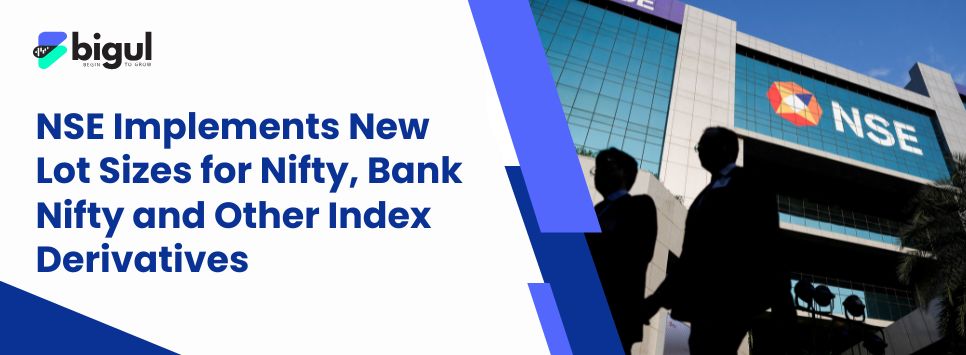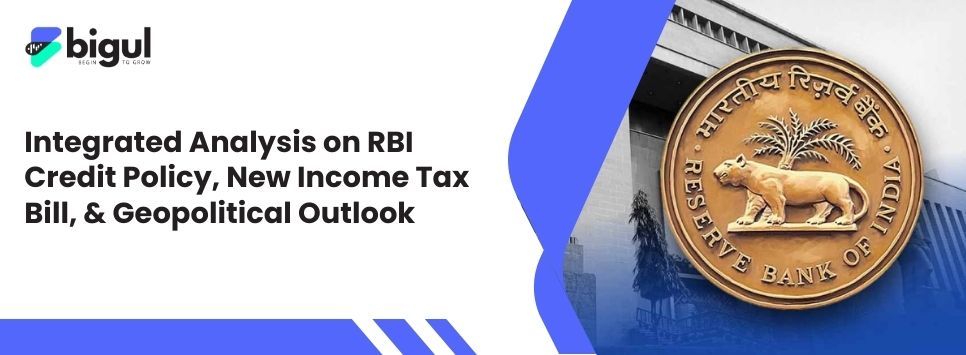Indian equity markets closed today with guarded optimism as investors digested a string of policy signals. RBI's 25 basis point rate cut in the repo rate to 6.25%—its first cut in nearly five years—aims to lower borrowing costs and inject credit growth. In the background, market players are closely monitoring the anticipated new Income Tax Bill, to be tabled in Parliament next week, and evolving global geopolitical threats.
Also Read | RBI MPC Meeting February 2025: Repo Rate Cut by 25 Bps
Technical Insights
• Index Performance:
Nifty 50 closed at 23,603 with trading in a constricted range. Strong resistance is at 23,717, while support is at 23,466. A decisive break above these resistance levels can bring in 24,000, while a break of the support can trigger further stress on the downside.
• Volume & Momentum:
Trading volumes were restricted with neutral momentum indicators, reflective of a consolidation phase. Investors appear to be waiting for clearer signals—both from the RBI and future fiscal policy announcements—before taking decisive commitments.
Fundamental & Credit Policy Insights
• RBI Rate Cut:
The 25bps cut to 6.25% aims to lower funding costs and inject credit growth, which will benefit rate-sensitive sectors like financials and automobiles. Even as RBI Governor Sanjay Malhotra cut rates, he remained neutral and stated that further easing will hinge on inflation trends and liquidity conditions.
• Sectoral Impacts:
Lowered borrowing costs are expected to improve net interest margins over the long term for banks and lift consumer financing in the automobile segment. However, caution is the word as global headwinds and domestic fiscal pressures continue to overshadow overall sentiment.
New Income Tax Bill – Logical Insights
• Simplification & Transparency:
The upcoming Income Tax Bill is likely to replace the archaic Income Tax Act, 1961 with a slimmed-down, easier-to-understand statute. By cutting down the text by almost 50% and phasing out outdated provisions, the bill hopes to minimize ambiguities, decrease the risk of litigation, and ease the compliance burden for taxpayers and administrators alike.
• Improved Disposable Income:
One of the remarkable aspects of the new tax regime is a higher tax exemption limit—potentially assuring zero tax on incomes up to around INR 12 lakh. The reform is expected to increase the disposable income of the middle-income group, thus triggering increased consumer spends in segments such as FMCG, real estate, and automobiles.
• Investor and Business Sentiment:
Simplification of tax laws is likely to enhance overall ease of business and investor sentiment. With fewer conflicts and a cleaner system, individual and corporate investors may find themselves facing a more predictable fiscal landscape, which could be good for market valuations in the medium term.
Geopolitical Outlook & Market Risks
• International Uncertainties:
While domestic policy reforms give the supportive environment, international geopolitical risks continue to cast their shadow on investor sentiment. Possible US tariff movements, tensions in the critical geography of the Indo-Pacific, and China-induced supply chain distortions are all risks that could amplify market volatility.
• Market Impact:
Any escalation of tensions in the geopolitical space could lead to reversals of capital flows and currency pressures, mainly impacting sectors of high international exposure. However, the combined effect of an accommodative credit stance and better tax terms could turn out to be an offset, boosting domestic consumption and long-term growth.
Integrated Impact & Strategic Considerations
The market close today captures a multi-dimensional story:
• Short-Term: Technical consolidation at important levels indicates that the market is still in a defensive mode, awaiting further policy guidance. The RBI rate reduction has brought immediate relief to credit-dependent industries, and investors are ready to counter potential volatility from emerging geo-political developments.
• Medium-Term: The expected New Income Tax Bill can be a strong driver for domestic consumption by elevating disposable incomes and simplifying compliance complexity. This, in turn, could drive consumer-driven sectors higher.
• Risk Management: Investors need to be on their guard. While fiscal and monetary easing measures are likely to aid economic activity, any unforeseen geo-political development can upset market stability, impacting both equity and currency markets.
Also Read | RBI Meeting: MPC is likely to cut repo rate







.jpg)





.jpg)
